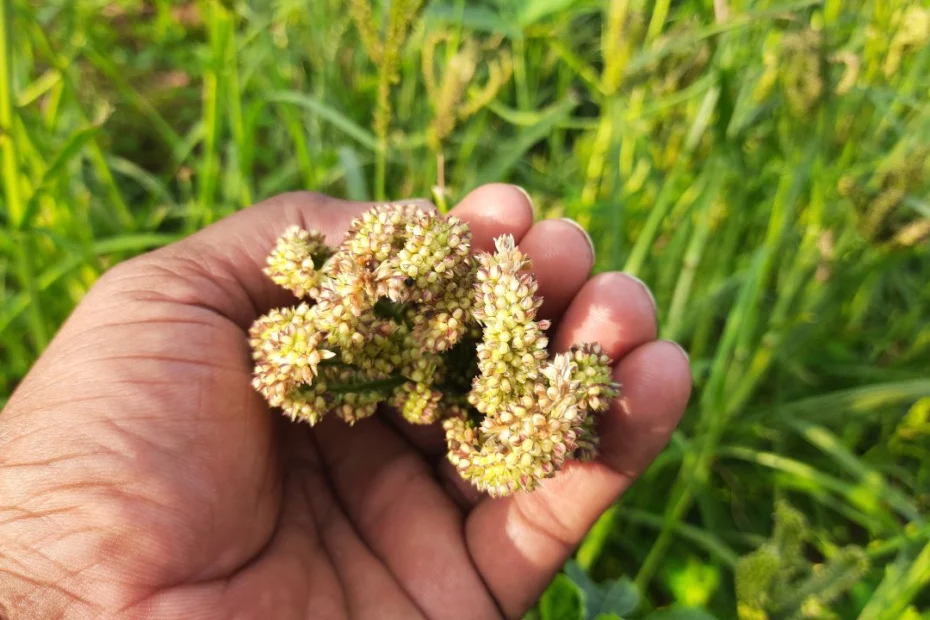Introduction:
Ragi, often referred to as finger millet or nachni, has grown in popularity as a superfood in recent years due to its outstanding nutritional profile and plethora of health advantages. This ancient grain has been grown for generations, and today it is valued for its high nutritional content and adaptability. In this article, we’ll look at 13 health advantages of ragi, examine its nutritional data, and talk about any possible negative effects to help you see how adding this grain to your diet can drastically improve your wellbeing.
Health Benefits of Ragi
- Rich in Nutrients: Ragi is a powerhouse of essential nutrients, including calcium, iron, potassium, magnesium, zinc, and various vitamins (B1, B2, B6). It is a particularly beneficial grain for vegetarians and vegans, as it offers a valuable source of plant-based nutrients.
- High Fiber Content: Fiber is crucial for healthy digestion and maintaining gut health. Ragi is an excellent source of dietary fiber, which helps prevent constipation, promotes regular bowel movements, and contributes to a feeling of fullness, aiding in weight management.
- Manages Diabetes: Ragi has a low glycemic index, meaning it causes a slow rise in blood sugar levels. This property makes it suitable for individuals with diabetes or those at risk of developing the condition. Ragi’s high fiber content also plays a role in regulating blood sugar levels.
- Gluten-Free Grain: Ragi is naturally gluten-free, making it an ideal grain for people with gluten sensitivities or those diagnosed with celiac disease. It offers a safe alternative for those seeking to avoid gluten in their diet.
- Promotes Bone Health: One of the key benefits of ragi is its high calcium content, making it excellent for maintaining strong and healthy bones. Regular consumption of ragi can help prevent conditions like osteoporosis and support bone development in growing children.
- Aids in Weight Loss: Ragi’s low fat content and high fiber content make it a great addition to weight loss diets. It helps control appetite, keeps you feeling full for longer, and promotes a gradual and sustainable weight loss process.
- Supports Heart Health: The presence of fiber, potassium, and magnesium in ragi contributes to heart health by lowering cholesterol levels and blood pressure, reducing the risk of cardiovascular diseases.
- Enhances Digestive Health: Ragi’s dietary fiber aids in digestion and promotes a healthy gut environment. It can help prevent issues like bloating, constipation, and other digestive disorders.
- Energy Booster: Being a complex carbohydrate, ragi provides a steady release of energy over an extended period. It is an ideal food for athletes, growing children, and individuals with active lifestyles.
- Controls Anemia: Ragi is an excellent source of iron, making it beneficial for individuals suffering from anemia or iron deficiency. Regular consumption can help improve hemoglobin levels and alleviate fatigue.
- Reduces Risk of Chronic Diseases: The unique combination of nutrients in ragi contributes to overall health, reducing the risk of chronic diseases such as type 2 diabetes, hypertension, and certain cancers.
- Boosts Immunity: The wealth of nutrients in ragi, including vitamins and minerals, contributes to strengthening the immune system. Regular consumption can help the body fight off infections and diseases more effectively.
- Improves Skin Health: Ragi is rich in antioxidants, which play a significant role in maintaining healthy skin by fighting off free radicals and reducing oxidative stress. It helps keep your skin youthful and glowing.
- Anti-Inflammatory Properties: Ragi contains antioxidants and phenolic compounds that exhibit anti-inflammatory properties. Regular consumption of ragi can help reduce inflammation in the body, potentially aiding in the management of inflammatory conditions and promoting overall health.
- Rich in Amino Acids: Ragi is a good source of essential amino acids, particularly methionine and tryptophan. Amino acids are the building blocks of protein and play a vital role in various bodily functions, including tissue repair, immune system support, and hormone production.
Nutritional Profile of Ragi:
Ragi is a nutritional powerhouse packed with essential nutrients. This ancient grain boasts an impressive nutritional profile, making it a valuable addition to any diet. Let’s have a look at its nutritional profile:
Nutrition Facts of Ragi (per 100g):
- Calories: 336 kcal
- Carbohydrates: 72g
- Protein: 7.6g
- Fat: 1.3g
- Fiber: 3.6g
- Calcium: 344 mg
- Iron: 3.9mg
- Magnesium: 137mg
- Potassium: 408mg
- Zinc: 2.7mg
- Vitamin B1: 0.42mg
- Vitamin B2: 0.19mg
- Vitamin B6: 0.2mg
Side Effects of Ragi:
While most people find ragi to be safe and well-tolerated, some people may experience minor negative effects, especially if ingested in large quantities. Among these negative impacts are:
- Oxalate Content: Ragi contains oxalates, which can inhibit the absorption of some minerals like calcium and increase the risk of kidney stones in those who are predisposed to them. Consuming ragi in moderation is advised for those who have a history of kidney stones.
- Allergic Reactions: Consuming ragi occasionally causes allergy reactions in people who are sensitive to gluten or millets. Stop using it and seek medical advice if you have any negative side effects.
Conclusion:
Ragi is undoubtedly a nutritional powerhouse with an impressive array of health benefits. Its rich nutrient profile, gluten-free nature, and versatility in culinary applications make it a valuable addition to any diet. However, as with any food, moderation is key. For most people, incorporating ragi into a well-balanced diet can lead to improved overall health and well-being. If you have specific health concerns or dietary restrictions, it’s best to consult a healthcare professional or nutritionist to determine the best way to include ragi in your diet safely. Enjoy the goodness of ragi and experience the positive impact it can have on your health!

